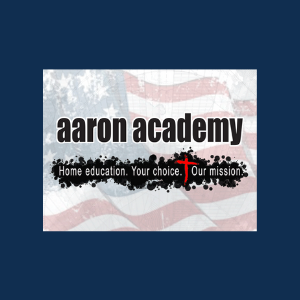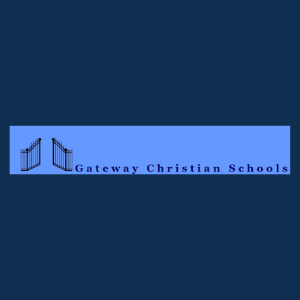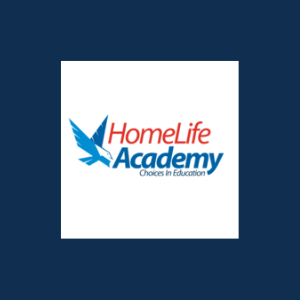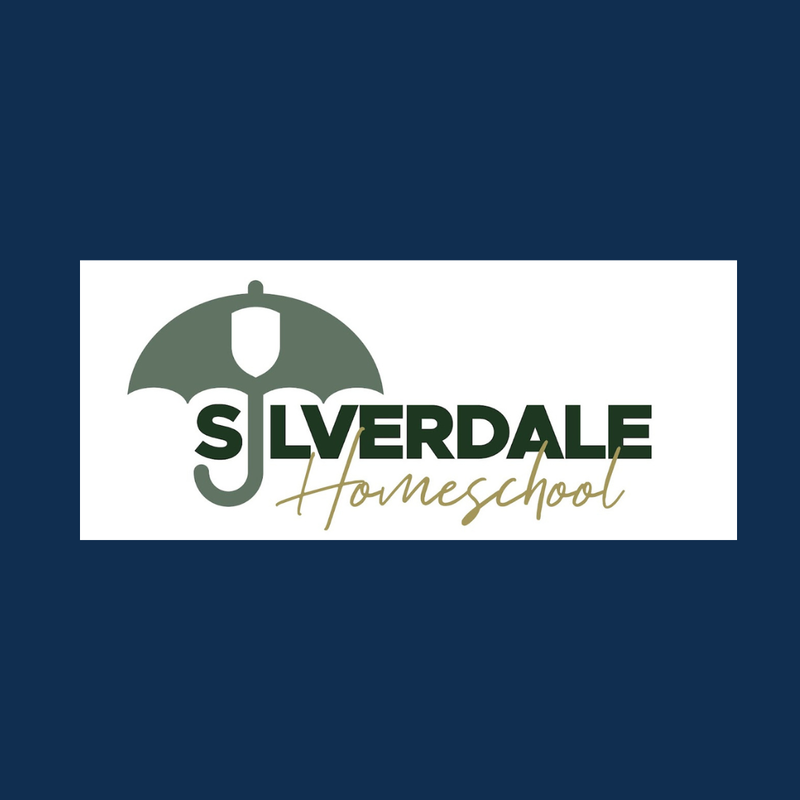Legally register your student.
There are 3 options to legally register your student as homeschooled in Tennessee.
- Church-related Umbrella School
- Independent Home School
- Accredited Online School
For more detailed information about Homeschool Laws in your state,
you may visit HSLDA or your state's Department of Education website.
HSLDA
Tennessee Department of Education
Georgia Department of Education
Alabama Department of Education
you may visit HSLDA or your state's Department of Education website.
HSLDA
Tennessee Department of Education
Georgia Department of Education
Alabama Department of Education
These three church-related schools
are usually represented at the Home Education Expo.
are usually represented at the Home Education Expo.
Talk with their representatives to find the church-related school you prefer. The church-related schools can answer questions regarding Tennessee laws, record keeping, grading and curriculum choices.
The differences among the church-related schools include geographical areas they cover, local presence, cost, testing requirements and whether they offer online reporting and record keeping among others.
(You have the option of registering with the superintendent of schools, but we don’t recommend that option. Despite what you may have been told, Tennessee law does not require registering with the superintendent.)
The differences among the church-related schools include geographical areas they cover, local presence, cost, testing requirements and whether they offer online reporting and record keeping among others.
(You have the option of registering with the superintendent of schools, but we don’t recommend that option. Despite what you may have been told, Tennessee law does not require registering with the superintendent.)
Church-related Umbrella Schools
Aaron Academy
AliYah Academy
Chestnut Ridge Academy & Satellite School
CHOICE Satellite School
The Comenius School
Cumberland Christian Academy
Daniel 1 Academy
Family Christian Academy
The Farm School
Franklin Christian Academy Umbrella Program
FC Boyd Christian School Umbrella Homeschool Program
Gateway Christian Schools
Grace Christian Umbrella Program
Heritage Christian Academy Umbrella Program
Heritage Covenant Schools
Home Life Academy
Jesus Only Academy
Macon Christian Academy
Rhea County Academy Homeschool Umbrella Program
Riverside Homeschool Umbrella
SailAway Learning & Academy
Silverdale Homeschool
These are some of the Church-related Umbrella schools in Tennessee. This list is not endorsed by CSTHEA. Please research which Church-related Umbrella school fits your family's beliefs, needs, and philosophies. This is also not an exhaustive list. If you would like to be included in this list or would like to have updated information included, please contact us here with the details.
Learn about different educational approaches.
There are several educational approaches to keep in mind while you are considering curriculum.
Here are a few of the most common. The Home Education Expo is a great place to learn about these different approaches! You can also reach out to the CSTHEA facebook group or one of the many local homeschool support groups.
Here are a few of the most common. The Home Education Expo is a great place to learn about these different approaches! You can also reach out to the CSTHEA facebook group or one of the many local homeschool support groups.
Traditional Textbook & Workbook
Examples of curriculum using this method would be
Abeka, Bob Jones, Rod and Staff, Alpha Omega, Landmark Freedom and ACE.
Abeka, Bob Jones, Rod and Staff, Alpha Omega, Landmark Freedom and ACE.
Some questions to ask yourself about the Textbook/Workbook approach:
- Did my child perform well in a classroom?
- Does my child like to complete assignments and to have defined goals?
- Will my child complete assigned tasks with a minimum of prodding from me?
- Am I the kind of person who will follow through with the lesson plans and pace of the course of instructions?
- Does my child read well and have good comprehension skills?
- Can my child work well independently?
- Does my child learn without a lot of variety to the teaching materials?
|
Strengths of the Textbook/Workbook approach:
|
Weakness of Textbook/Workbook approach:
|
Classical
Examples of curriculum using this method would be
The Omnibus by Veritas Press, The Well Trained Mind by Susan Wise Bauer, and Teaching the Trivium: Christian Homeschooling in a Classical Style by Harvey and Laurie Bluedorn.
You may want to check out local groups such as Veritas or Classical Conversations.
The Omnibus by Veritas Press, The Well Trained Mind by Susan Wise Bauer, and Teaching the Trivium: Christian Homeschooling in a Classical Style by Harvey and Laurie Bluedorn.
You may want to check out local groups such as Veritas or Classical Conversations.
Based on three stages of learning called the trivium. The first stage (the Grammar Stage) covers early elementary ages and focuses on reading, writing, and spelling; the study of Latin; and developing observation, listening and memorization skills. The second stage (the Dialectic Stage) covers middle school ages and teaches logical discussion, debate, and how to draw correct conclusions and support them with facts. The final stage (the Rhetoric Stage) covers high school and seeks to produce a student who can use language, both written and spoken, eloquently and persuasively.
Some questions to ask yourself about the Classical approach:
Some questions to ask yourself about the Classical approach:
- Does my family like to read good literature?
- Are my children intellectually oriented and comfortable with a rigorous academic approach?
- Am I comfortable learning alongside my children so I can teach them things I never studied?
- Do I like to study and discuss ideas that have influenced civilization?
|
Strengths of the Classical approach:
|
:Weakness of the Classical approach:
|
Unit Study
Examples of curriculum using this method would be Amanda Bennett, Five in a Row, KONOS, and Valerie Bendt.
This approach takes a theme or topic and delves into it deeply over a period of time, integrating language arts, science, social studies, math, and fine arts as they apply.
Some questions to ask yourself about the Unit Study approach:
Some questions to ask yourself about the Unit Study approach:
- Am I a creative person?
- Do I like trying to make everything interesting and fun?
- Do my children have a variety of interest and learning styles?
- Can I live with the fact that there may be “gaps” in my children’s education?
- Do I have the time and energy to be the driving, creative force behind the development of units?
|
Strengths of the Unit Study approach:
|
Weakness of the Unit Study approach:
|
Literature Based
Examples of curriculum using this method would be Sonlight or Tapestry of Grace.
Some questions to ask yourself about Literature Based approaches:
- Does our family like to read, both alone and together through reading aloud?
- Am I comfortable with more of a “free form” approach to learning?
- Do I trust my children to learn on their own?
|
Strengths of the Literature-Based approach:
|
Weakness of the literature-based approach:
|
Living Book or Charlotte Mason
Examples of curriculum and resources using this method would be Amblesideonline.org, CMI’s The Alveary, SimplyCharlotteMason.com, Charlotte Mason: a Study Guide by Penny Gardner, Charlotte Mason Companion by Karen Andreola, and Charlotte Mason Education by Catherine Levison. Locally there is a Charlotte Mason support group, yahoo group (CMersinTN) and Chattanooga Charlotte Mason Facebook group.
Exhibitors who feature this method are Simply Charlotte Mason.
Exhibitors who feature this method are Simply Charlotte Mason.
Mason’s approach to academics was to teach basic reading, writing, and math skills, then expose children to the best sources of knowledge for all other subjects. This meant giving children experience like nature walks, observing and collecting wildlife; visiting art museums; and reading real books with “living ideas.” She called such books “living books” because they made the subjects “come alive” unlike textbooks that tend to be dry and dull and assume the reader cannot think for him/herself.
Some questions to ask yourself about the Living Book/Charlotte Mason approach:
Some questions to ask yourself about the Living Book/Charlotte Mason approach:
- Does our family like to read both alone and together through reading aloud?
- Am I comfortable with more of a “free form” approach to learning?
- Will I follow through with exposing my children firsthand to nature, music, and to great art?
|
Strengths of the Living Books/Charlotte Mason Approach:
|
Weakness of the Living Books/Charlotte Mason Approach:
|
Co-Ops & Tutorials
Examples of local Tutorials are Hilger Higher Learning, Classical Conversations,
Michaels Homeschool , Scriptorium and The Blessing Place. More can be found by asking our CSTHEA facebook group.
Michaels Homeschool , Scriptorium and The Blessing Place. More can be found by asking our CSTHEA facebook group.
If you are not comfortable teaching a particular subject, you can seek out the assistance of groups such as online classes, private classes, co-ops or tutorials.
Learn about different homeschool resources.
There are many great resources that are not listed here!
Please take some time to research resources on your own and share with us when you find something great!
Please take some time to research resources on your own and share with us when you find something great!
Websites
CSTHEA
You're here! This is a great way to keep up to date on what is happening with homeschooling in Chattanooga and with CSTHEA sponsored events, activities, and sports.
The Homeschool Mom
Comprehensive site with excellent pre-school advice.
Homeschooling Today
Online magazine with lots of helpful articles.
The Old Schoolhouse Magazine
Online magazine with lots of helpful articles.
Successful Homeschooling
Comprehensive, well organized website that gives some good answers to the questions, “Why homeschool?” “How do I start homeschooling?” and “Where can I find the best homeschool resources?” Has sections on getting organized, saving money, working at home, and finding support.
You're here! This is a great way to keep up to date on what is happening with homeschooling in Chattanooga and with CSTHEA sponsored events, activities, and sports.
The Homeschool Mom
Comprehensive site with excellent pre-school advice.
Homeschooling Today
Online magazine with lots of helpful articles.
The Old Schoolhouse Magazine
Online magazine with lots of helpful articles.
Successful Homeschooling
Comprehensive, well organized website that gives some good answers to the questions, “Why homeschool?” “How do I start homeschooling?” and “Where can I find the best homeschool resources?” Has sections on getting organized, saving money, working at home, and finding support.
Books
- How to Homeschool: A Practical Approach, by Gayle Graham
- The Ultimate Guide To Homeschooling, by Debra Bell
- Choosing & Using Curriculum, by Joyce Herzog
- The Way They Learn, by Cynthia Tobias
- Educating the Whole Hearted Child, by Clay & Sally Clarkson
- Charlotte Mason Companion, by Karen Andreola
- 100 Top Picks For Homeschooling Curriculum, by Cathy Duffy
- So You’re Thinking About Homeschooling, by Lisa Whelchel
- Homeschooling the Early Years, by Linda Dobson
- Home Learning Year by Year by Rebecca Rupp
- The Ultimate Book of Homeschooling Ideas, by Linda Dobson
- The Successful Homeschool Family Handbook, by Raymond and Dorothy Moore
- Homeschooling for the Rest of Us by Sonya Haskins
- For the Children’s Sake, by Susan Schaeffer Macaulay
- Teaching from Rest by Sarah Mackenzie
- A Handbook to Morning Time by Cindy Rollins
Join a homeschool support group.
Others have paved the way!
There are many support groups that are based on homeschool approaches, geography, and more.
Please see our Support Group page for a list of groups in our area.
There are many support groups that are based on homeschool approaches, geography, and more.
Please see our Support Group page for a list of groups in our area.
Learn about learning opportunities in your area.
The Chattanooga area is blessed with many learning opportunities.
Learn about many of these opportunities at our
Home Education Expo, our CSTHEA facebook page, and on our CSTHEA facebook group
Learn about many of these opportunities at our
Home Education Expo, our CSTHEA facebook page, and on our CSTHEA facebook group
Some ideas include:
- Local Museums
- Local Attractions
- Libraries
- Retail Stores that offer classes
- Business that offer field trips



